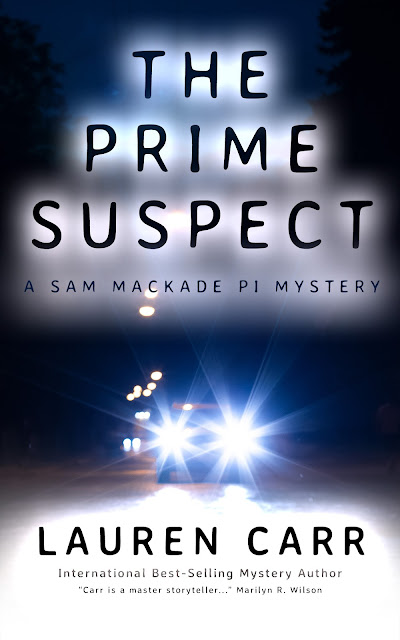Golden's Rule by C.E. Edmonson (Rated: C)
Pleasant Word - A Division of Winepress Publishing
ISBN: 978-1-4141-1378-4
Published July 2009
Trade paperback, 220 pages
Meet Maddie Bergamo. Fourteen years old. Young, pretty, and smart. Nicknamed “the Flash” for her quick moves on the basketball court, she dreams of eventually competing at the Olympics, until one day she falls flat on her face when her leg suddenly gives out during a game. This is the first symptom in a line of scary ones that leads to a diagnosis, shattering her world so quickly everything changes overnight.
Then her mother gives her the unexpected gift of a memoir written by her great-great-great grandmother, telling the story of her life as a slave girl. As Maddie lives through the most agonizing and life-threatening days of her life, the diary becomes a strengthening aid to her.
Meet Golden Lea Jackson Pitts. Fourteen years old. Young, black, and a slave. Her story is one of hardship but also hope as she embarks on her journey to freedom. The author deftly alternates between the voices of these two brave girls and how their lives are connected by their adversities and their challenge to cope. I must admit I loved Golden’s voice. She was so authentic and real. I could see her so clearly in my mind’s eye and hear her dialect voice through the pages. Her ordeals and losses touched me deeply. Golden had spirit and strength, dealing with her situations with wisdom and maturity. Despite the sufferings, she developed a beautiful rule by which she faithfully lived and passed on as an inheritance to her progeny—hence the title of the novel.
Reading the yellowed handwritten words of this strong female ancestor, Maddie learns to courageously face what lays ahead of her and also some important life lessons. It gives her a whole new perspective on life, and pride in her multi-racial heritage. Her future goals and what she thought were important takes on a whole new meaning.
Some of the issues that Edmonson touches on—racism, family appreciation, independence, parental attitude, and altruistic giving—are ones that all youths can relate to in one form or another. There are serious scenes in this novel that make the reader ponder on the injustices of this world today and in the past. However, it is far from being morose, but filled with hope and optimism instead.
This wholesome novel has the power to evoke strong emotions in readers of all ages. For teens, it will nudge them out of their comfortable zone to reflect on how they can make good use of their lives, even when an illness hits them. Conversely, it can give today’s youth bombarded with the pressures for sex, drugs and violence the motivation to keep going and to stand up for what is right. For adults, it will remind them that it’s never too late to take stock of their lives and keep their priorities straight, especially when it comes to family.
The author wrote this book for his daughters—a loving way to transmit a powerful message. After I pass the book to my book-loving teen friends, I will store it on my bookshelf, saving it for when I could pass it on and share this touching story with my own daughter.
Pleasant Word - A Division of Winepress Publishing
ISBN: 978-1-4141-1378-4
Published July 2009
Trade paperback, 220 pages
Meet Maddie Bergamo. Fourteen years old. Young, pretty, and smart. Nicknamed “the Flash” for her quick moves on the basketball court, she dreams of eventually competing at the Olympics, until one day she falls flat on her face when her leg suddenly gives out during a game. This is the first symptom in a line of scary ones that leads to a diagnosis, shattering her world so quickly everything changes overnight.
Then her mother gives her the unexpected gift of a memoir written by her great-great-great grandmother, telling the story of her life as a slave girl. As Maddie lives through the most agonizing and life-threatening days of her life, the diary becomes a strengthening aid to her.
Meet Golden Lea Jackson Pitts. Fourteen years old. Young, black, and a slave. Her story is one of hardship but also hope as she embarks on her journey to freedom. The author deftly alternates between the voices of these two brave girls and how their lives are connected by their adversities and their challenge to cope. I must admit I loved Golden’s voice. She was so authentic and real. I could see her so clearly in my mind’s eye and hear her dialect voice through the pages. Her ordeals and losses touched me deeply. Golden had spirit and strength, dealing with her situations with wisdom and maturity. Despite the sufferings, she developed a beautiful rule by which she faithfully lived and passed on as an inheritance to her progeny—hence the title of the novel.
Reading the yellowed handwritten words of this strong female ancestor, Maddie learns to courageously face what lays ahead of her and also some important life lessons. It gives her a whole new perspective on life, and pride in her multi-racial heritage. Her future goals and what she thought were important takes on a whole new meaning.
Some of the issues that Edmonson touches on—racism, family appreciation, independence, parental attitude, and altruistic giving—are ones that all youths can relate to in one form or another. There are serious scenes in this novel that make the reader ponder on the injustices of this world today and in the past. However, it is far from being morose, but filled with hope and optimism instead.
This wholesome novel has the power to evoke strong emotions in readers of all ages. For teens, it will nudge them out of their comfortable zone to reflect on how they can make good use of their lives, even when an illness hits them. Conversely, it can give today’s youth bombarded with the pressures for sex, drugs and violence the motivation to keep going and to stand up for what is right. For adults, it will remind them that it’s never too late to take stock of their lives and keep their priorities straight, especially when it comes to family.
The author wrote this book for his daughters—a loving way to transmit a powerful message. After I pass the book to my book-loving teen friends, I will store it on my bookshelf, saving it for when I could pass it on and share this touching story with my own daughter.












